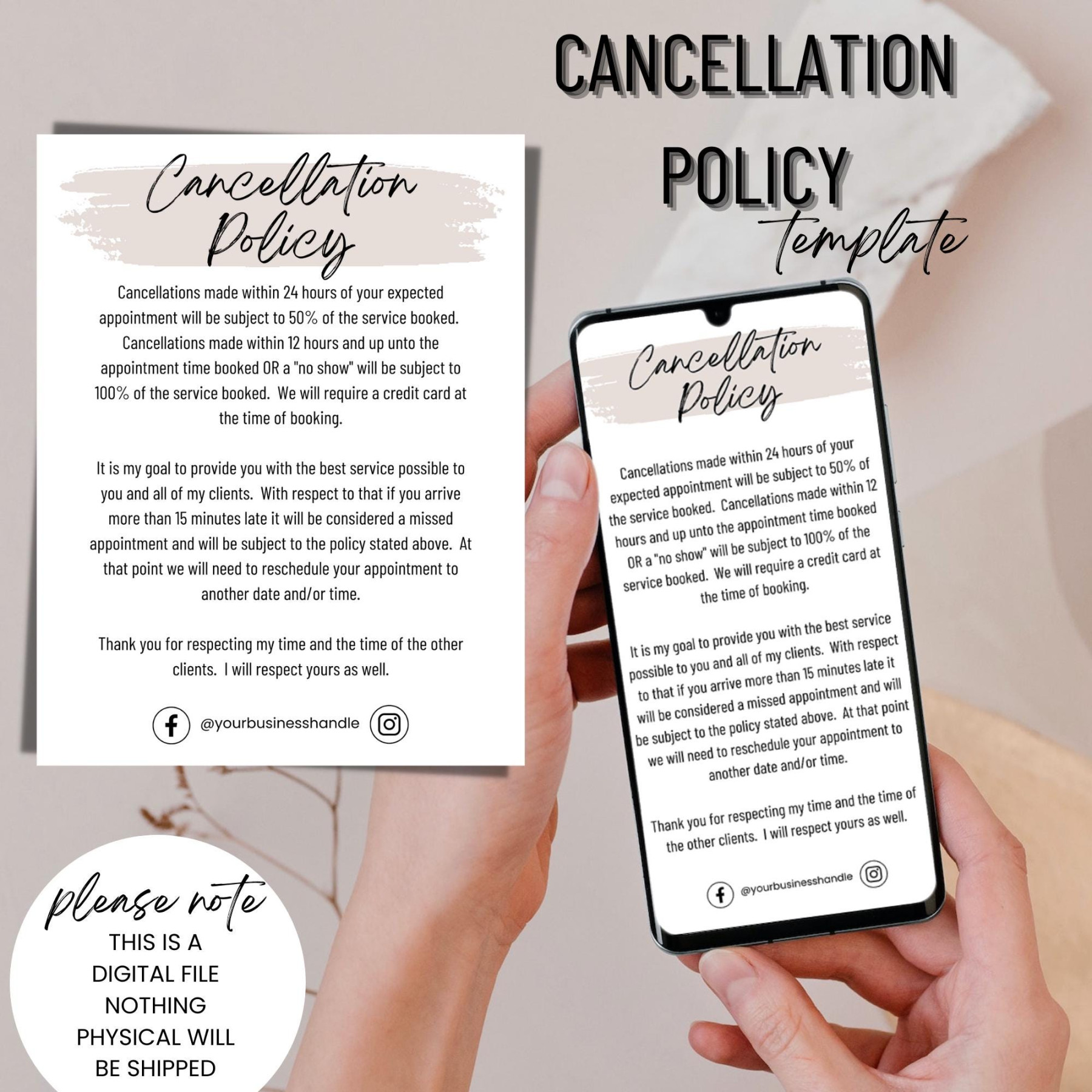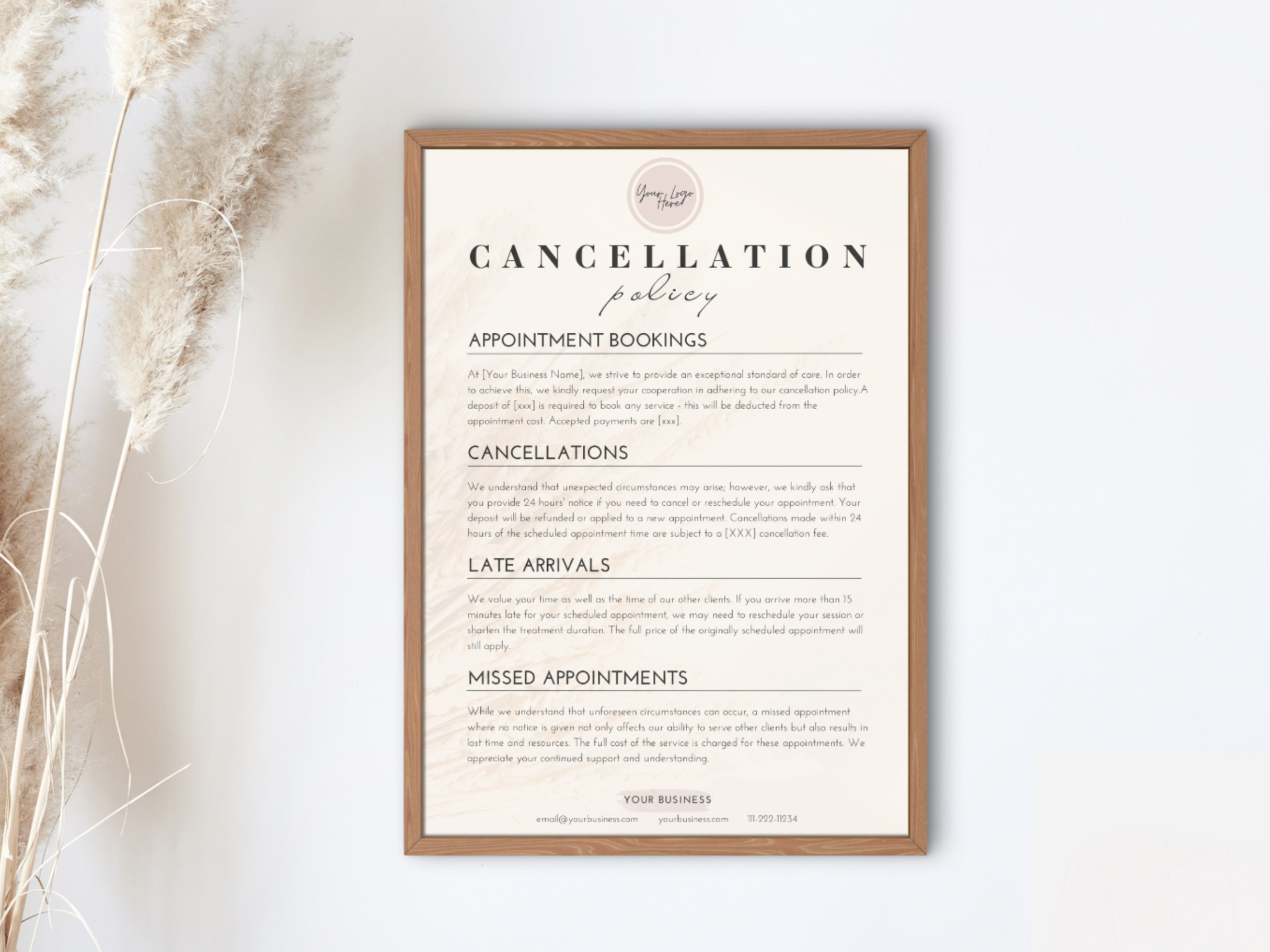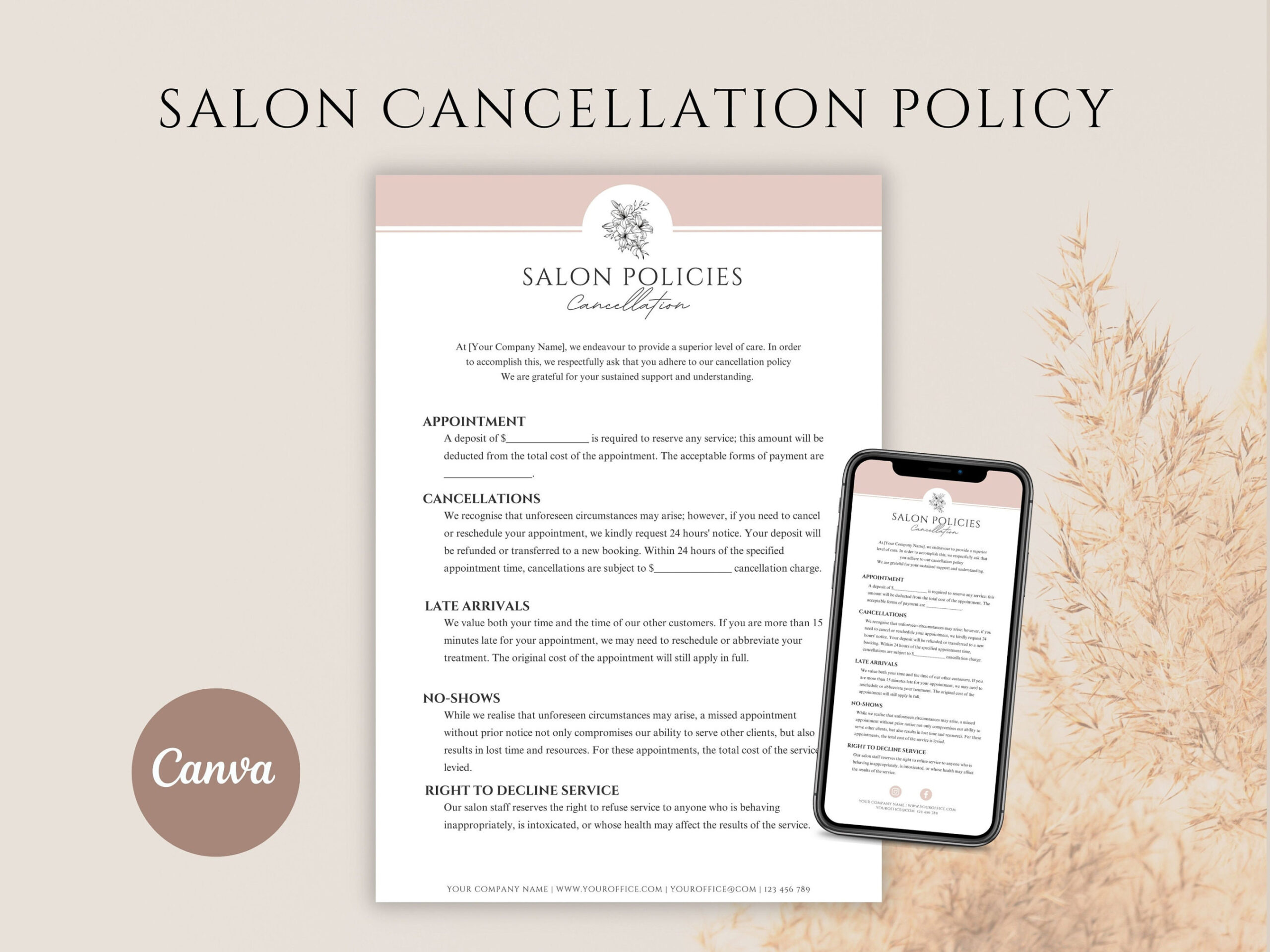A well-crafted salon cancellation policy is essential for maintaining a smooth operation, respecting your clients’ time, and ensuring fairness for both parties. By establishing clear guidelines, you can effectively manage cancellations and minimize disruptions to your schedule.
Key Elements of a Salon Cancellation Policy
1. Clear and Concise Language

Image Source: etsystatic.com
Use plain language: Avoid jargon and technical terms that may confuse clients.
2. Cancellation Notice Period
Specify the required notice period: Clearly state how much advance notice is required for cancellations.

Image Source: etsystatic.com
3. Cancellation Fees
Outline the fee structure: Clearly state the amount of the fee and when it will be charged.
4. No-Show Policy

Image Source: etsystatic.com
Define a “no-show”: Clearly outline what constitutes a no-show, such as missing an appointment without providing any notice.
5. Rescheduling Policy
Establish rescheduling guidelines: Clearly state the process for rescheduling appointments.
6. Late Arrival Policy
Define a “late arrival”: Clearly state how late a client can arrive before their appointment is canceled.
7. Force Majeure
Address unforeseen circumstances: Consider including a clause that outlines how the policy will be affected by unforeseen circumstances, such as natural disasters or health emergencies.
Design Elements for a Professional Salon Cancellation Policy Template
1. Clear and Consistent Formatting
Use a clean and professional font: Choose a font that is easy to read and visually appealing.
2. Visual Appeal
Use a professional color scheme: Choose colors that complement your brand and create a visually appealing document.
3. Clear and Concise Language
Use short and simple sentences: Avoid using complex sentence structures.
4. Professional Tone
Use formal language: Avoid using slang or informal language.
Example Salon Cancellation Policy Template
Cancellation Policy
To ensure fairness for all clients, we kindly request a [number]-hour notice for any cancellations or rescheduling. This allows us to fill your appointment slot and accommodate other clients.
Cancellation Fees
[Number] hours or less notice: [Fee amount]
Late Arrivals
If you arrive more than [number] minutes late, we may need to reschedule your appointment or shorten your service time.
Force Majeure
In the event of unforeseen circumstances, such as natural disasters or health emergencies, we may waive fees or reschedule appointments.
We appreciate your understanding and cooperation.
By incorporating these elements and following these guidelines, you can create a professional and effective salon cancellation policy that protects your business and ensures a positive experience for your clients.